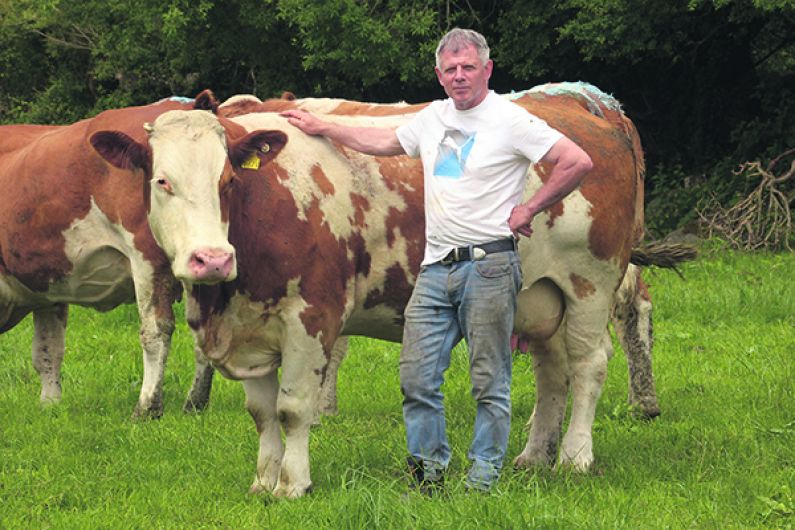West Cork's beef farmers are working for less than €4 an hour and facing an extremely uncertain future.
WEST Cork’s beef farmers are working for less than €4 an hour and facing an extremely uncertain future.
Speaking to The Southern Star, former West Cork Drystock Farmer of the Year and Teagasc Grassland Farmer of the Year, Gerard Dineen from Kilnamartyra, said that there is a lot of fear and concern amongst beef farmers across the country.
‘Whether we admit it or not, there is a lot of despair out there at the moment,’ Gerard said. ‘It is near impossible to make a living from beef farming and more and more farmers are finding themselves and their families in a very difficult position right now.’
Gerard, who is considered one of the best beef farmers in Ireland and who is a member of the beef steering committee, said that while, for many, an off-farm job is essential, in order to provide for themselves and their families, farmers are not factoring in their time, their labour costs, as part of their farm accounts.
‘Looking back on 2017 and 2018, and the cost to produce a kilo of beef, it’s not hard to see the difficulties faced by farmers,’ Gerard said. ‘In 2017, which was the better year of the two, a kilo of beef cost us here €5.03 to produce and we saw prices reach just over €4 at the mart.
‘But, in 2018, because of the fodder crisis and cost of feed, it cost us €5.38 per kilo and we saw prices of between €3.70 to €3.80 per kilo at the mart. Now, it doesn’t take an accountant to see that this is unsustainable.’
While costs and prices per kilo are well known to every beef farmer in West Cork, Gerard feels that the true cost to farmers is not being factored into or even discussed when it comes to keeping an eye of the farm accounts.
‘For most farmers with off-farm jobs, factoring in the cost of their labour on their farms is not something that is even considered,’ Gerard said. ‘This is a cost that has to be accounted for, but unfortunately most farmers have never even contemplated calculating exactly how much their daily work on their farm costs them.’
Gerard calculated that he works just over 55 hours a week, sometimes more, on his farm. Given the average working week is 39 hours and the legal maximum is 48 hours, these long hours are ‘all part of farming life,’ Gerard said.
‘Taking a 55-hour week as a starting point, we found that we are looking at under €4 a hour, well below the national minimum wage hourly rate,’ Gerard said. ‘If you were to factor this into your farm accounts, I think that the situation for beef farmers would be even more dire.
‘Added to all this, we have the Brexit uncertainty, which is another unknown facing not only the beef farmers but the entire farming community, and given the possibility of a “hard Brexit,” we could be looking at intervention prices – an outcome that we all must consider.’







